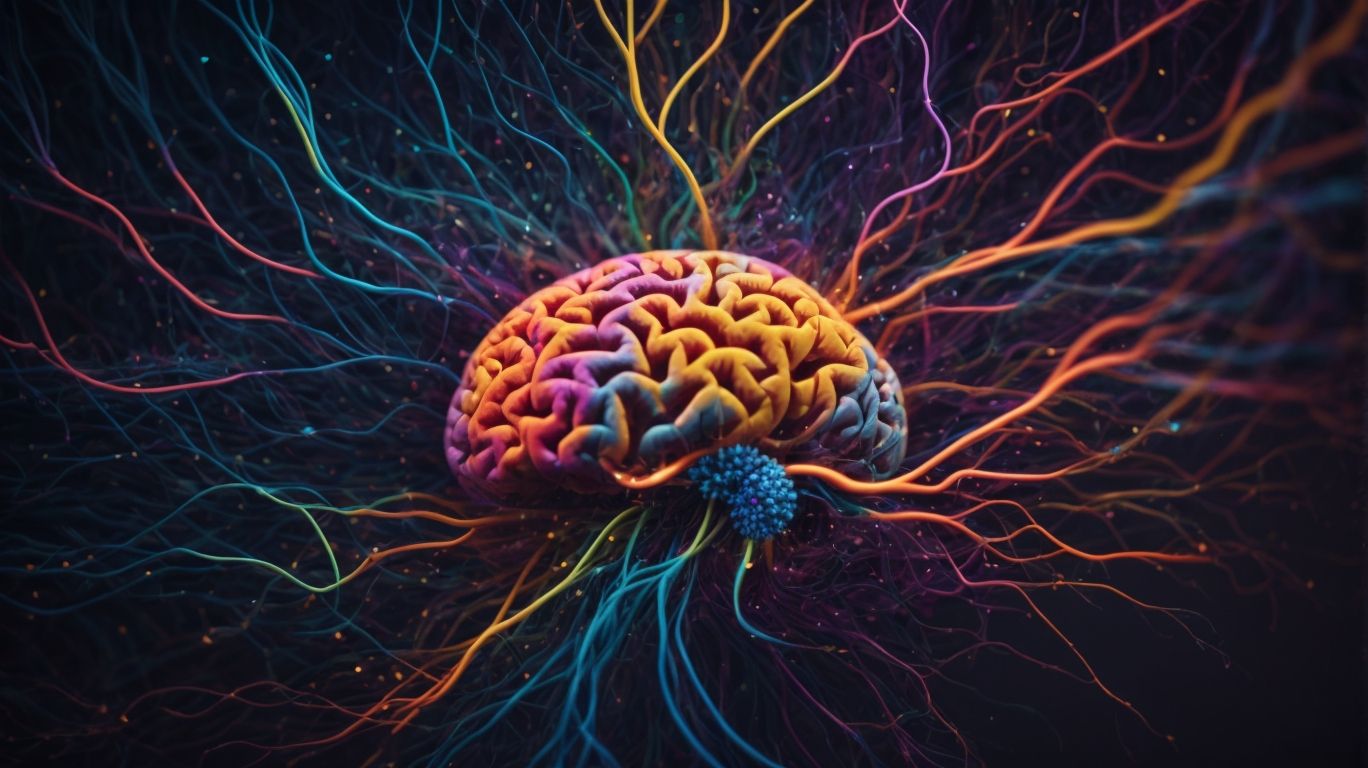Neuropsychology is a fascinating field that explores the relationship between the brain and behavior. In this article, we will delve into the intricacies of neuropsychology, including how the brain works and the different parts of the brain.
We will also discuss the role of neuropsychology in understanding the brain, the various approaches to studying it, and common neuropsychological disorders. We will explore treatment options for these disorders and how neuropsychology can help improve mental health. Join us as we unravel the mysteries of the human brain and its impact on behavior and cognition.
Contents
- 1 Key Takeaways:
- 2 What is Neuropsychology?
- 3 How Does the Brain Work?
- 4 What is the Role of Neuropsychology in Understanding the Brain?
- 5 What Are the Different Approaches to Studying Neuropsychology?
- 6 What Are the Common Neuropsychological Disorders?
- 7 What Are the Treatment Options for Neuropsychological Disorders?
- 8 How Can Neuropsychology Help Improve Mental Health?
- 9 Frequently Asked Questions
- 9.1 What is neuropsychology?
- 9.2 How does neuropsychology differ from other branches of psychology?
- 9.3 What are some common conditions studied in neuropsychology?
- 9.4 How is neuropsychology used in clinical settings?
- 9.5 What are some career options in neuropsychology?
- 9.6 How can understanding neuropsychology benefit everyday life?
Key Takeaways:
What is Neuropsychology?
Neuropsychology is a scientific field that focuses on the study of brain-behavior relationships, exploring how cognitive functions and behaviors are linked to the neurological processes within the brain.
Neuropsychologists utilize various research methods, including neuroimaging, electrophysiology, and neuropsychological testing, to gain understanding of how different brain regions impact language, memory, attention, perception, and other cognitive processes. Their examination of individuals with brain injuries, diseases, or developmental disorders provides valuable insights into the complexities of the human brain, with the ultimate goal of enhancing diagnosis, treatment, and rehabilitation for those with neurological conditions.
How Does the Brain Work?
The brain is a complex organ responsible for governing various cognitive functions and behaviors through intricate neurological processes and interconnections within its neuroanatomical structures.
Neuroanatomical structures, such as the cerebral cortex, thalamus, and hippocampus, are crucial in regulating thought, perception, and memory.
The brain’s neural pathways, consisting of neurons and synapses, facilitate the transmission of electrical and chemical signals necessary for communication within the brain.
The brain’s functions include motor control, language processing, emotional regulation, and sensory perception, all supported by the coordination and integration of different brain regions and networks.
The interplay of neurotransmitters, such as dopamine, serotonin, and acetylcholine, also plays a significant role in influencing cognitive processes, emotions, and behavior.
What Are the Different Parts of the Brain?
The brain comprises distinct regions and structures, each playing a crucial role in governing specific cognitive functions and behavioral responses, contributing to our understanding of neuroscience and neuroanatomy.
The brain is divided into different regions, each with its own specific functions. These regions include the cerebrum, responsible for higher brain functions such as learning, memory, and conscious thought. The cerebellum, on the other hand, is responsible for coordinating voluntary movements and maintaining posture and balance.
The brainstem, which connects the brain to the spinal cord, is responsible for regulating vital functions such as breathing, heart rate, and digestion. Lastly, the limbic system, which is involved in emotion and memory, comprises the hippocampus, amygdala, and hypothalamus. This system plays a crucial role in our response to stress and in forming long-term memories.
What is the Role of Neuropsychology in Understanding the Brain?
Neuropsychology plays a pivotal role in unraveling the intricate mechanisms of the brain, offering insights into how cognitive functions and neurological processes impact clinical assessments, therapeutic interventions, and advancements in cognitive rehabilitation.
The specialized understanding gained from neuropsychology not only aids in diagnosing and treating cognitive and neurological disorders but also paves the way for innovative therapeutic approaches.
By examining the interplay between brain functions and behavior, neuropsychology informs the development of targeted interventions for individuals with conditions such as traumatic brain injury, stroke, and neurodegenerative diseases.
What Are the Different Approaches to Studying Neuropsychology?
The study of neuropsychology encompasses diverse approaches, including clinical assessments, research endeavors, and methodological explorations, contributing to the advancement of our understanding of cognitive functions and neurological disorders.
One of the primary methodologies employed in studying neuropsychology is clinical assessment techniques. These techniques involve comprehensive evaluations of an individual’s cognitive and emotional functions, often utilizing standardized tests and observational approaches to diagnose and treat neurological conditions.
Additionally, research methodologies play a crucial role in deciphering the intricacies of the human brain and its functions, encompassing diverse approaches such as neuroimaging, longitudinal studies, and experimental designs. The impact of these methodologies is profound, providing valuable insights into the mechanisms underlying cognitive functions and offering innovative assessment practices for understanding and managing neurological disorders.
Clinical Neuropsychology
Clinical neuropsychology focuses on the comprehensive assessment of cognitive functions and behavioral manifestations in individuals with neurological disorders, guiding therapeutic interventions and rehabilitation strategies to address their specific needs.
Through specialized assessments, clinical neuropsychologists evaluate various domains of cognition such as attention, memory, language, and executive functions to understand the impact of neurological conditions on these abilities.
By integrating neuroimaging techniques and standardized tests, they are able to pinpoint the specific cognitive deficits and their underlying neuroanatomical correlates.
Clinical neuropsychologists play a crucial role in designing personalized therapeutic interventions, which may include cognitive rehabilitation programs and psychotherapeutic modalities aimed at enhancing cognitive functioning and facilitating emotional adjustment in individuals with neurological disorders.
By collaborating with interdisciplinary teams, they ensure an integrated approach to rehabilitation, promoting optimal recovery and quality of life for their patients.
Experimental Neuropsychology
Experimental neuropsychology delves into research-driven explorations of cognitive functions and neurological processes, elucidating fundamental principles that underpin our understanding of neuroscience and cognitive functions.
By employing rigorous methodologies and innovative neurocognitive assessments, experimental neuropsychology seeks to unravel complex interrelationships between brain mechanisms and cognitive processes.
This scientific discipline plays a pivotal role in elucidating the underlying neural substrates of various cognitive functions, such as attention, memory, language, and executive functioning, thus providing invaluable insights for treating neurological disorders and enhancing human cognition.
Experimental neuropsychology contributes significantly to the advancements in cognitive neuroscience, impacting diverse areas such as brain imaging techniques, neurorehabilitation, and neural prosthetics.
Cognitive Neuropsychology
Cognitive neuropsychology focuses on the utilization of advanced technologies and scientific methodologies to investigate cognitive functions and their underlying neurological substrates, paving the way for innovative insights into the complexities of human cognition.
This interdisciplinary field leverages neuroimaging techniques such as functional magnetic resonance imaging (fMRI) and positron emission tomography (PET) to observe brain activity, enabling researchers to map the neural correlates of various cognitive processes.
Cognitive neuropsychologists integrate electrophysiological measures like electroencephalography (EEG) and event-related potentials (ERPs) to capture real-time brain responses, offering valuable insights into the temporal dynamics of cognitive functions.
What Are the Common Neuropsychological Disorders?
Neuropsychological disorders encompass a range of conditions, including Alzheimer’s disease, epilepsy, and other neurological dysfunctions, posing unique challenges for individuals and necessitating specialized intervention and support.
These disorders affect millions of people worldwide, impacting their cognitive, emotional, and physical well-being.
The prevalence of Alzheimer’s disease has increased with aging populations, highlighting the significance of early diagnosis and intervention.
Similarly, epilepsy can disrupt daily activities and necessitates tailored treatment plans to manage seizures effectively.
Individuals with neuropsychological disorders often require comprehensive care from multidisciplinary teams, including neurologists, psychologists, and support groups.
Specialized interventions and supportive environments play a crucial role in enhancing the quality of life for those affected.
Traumatic Brain Injury
Traumatic brain injury presents significant clinical challenges, requiring comprehensive assessments and therapeutic interventions to address the complex cognitive and neurological sequelae experienced by individuals affected by such injuries.
Following a traumatic brain injury, individuals may encounter a range of cognitive and neurological deficits, including memory impairments, attention difficulties, executive function deficits, and emotional dysregulation.
These sequelae can significantly impact daily functioning, work performance, and quality of life. As a result, it is vital for healthcare professionals to conduct thorough neuropsychological assessments and neuroimaging studies to accurately identify and understand the nature and extent of the deficits.
Stroke
Stroke, as a prevalent neurological disorder, necessitates focused rehabilitation efforts and research-driven interventions to address the cognitive impairments and neurological consequences faced by individuals recovering from stroke-related events.
Indeed, the impact of stroke on cognitive functions can be profound, affecting memory, attention, language, and executive functions.
This can significantly impair an individual’s ability to perform daily activities and participate fully in society. It underscores the critical need for neurological rehabilitation that encompasses comprehensive, evidence-based strategies to target specific cognitive deficits, promote neuroplasticity, and improve overall functional outcomes.
Dementia
Dementia, including Alzheimer’s disease, poses profound challenges to cognitive functions, necessitating specialized therapeutic interventions and support systems to enhance the quality of life for individuals affected by these neurodegenerative conditions.
The impact of Alzheimer’s disease on cognitive functions is significant, often resulting in memory loss, impaired reasoning, and changes in behavior. It not only affects the individuals diagnosed with the disease but also places immense pressure on their caregivers and families.
To address these challenges, cognitive rehabilitation therapy plays a crucial role in improving memory, attention, and problem-solving skills. It involves personalized interventions tailored to the individual’s needs, focusing on enhancing cognitive abilities and promoting independence in daily activities.
Alongside therapy, specialized support systems are essential, offering comprehensive care, cognitive stimulation programs, and promoting social engagement to maintain brain health and slow the progression of the disease. These systems also provide emotional and psychological support, alleviating the burden on both the affected individuals and their caregivers.
The combined approach of therapy and specialized support systems not only improves the cognitive functions of individuals with Alzheimer’s disease but also enhances their overall well-being, emphasizing the critical need for tailored interventions and comprehensive care for those affected by dementia.
Epilepsy
Epilepsy, characterized by neurological disruptions, requires a multidimensional approach to address its impact on cognitive functions and behavioral manifestations, highlighting the importance of neuroscience-driven therapeutic strategies and cognitive interventions.
The intricate nature of epilepsy, involving abnormal electrical activity in the brain, can lead to diverse cognitive and behavioral challenges. Individuals with epilepsy often experience difficulties with memory, attention, and executive functions, influencing their overall cognitive abilities.
Seizures and antiepileptic medications can further impact cognitive performance. Therefore, a comprehensive understanding of neurological intricacies is vital for developing targeted therapeutic interventions and optimizing cognitive rehabilitation plans.
What Are the Treatment Options for Neuropsychological Disorders?
Treatment options for neuropsychological disorders encompass a spectrum of interventions, including cognitive rehabilitation, therapeutic modalities, and innovative therapy approaches aimed at restoring and enhancing cognitive functions and neurological adaptations.
Neuropsychological disorders can be addressed through various therapeutic modalities such as cognitive-behavioral therapy, neuropsychological testing, and medication management.
Cognitive rehabilitation focuses on improving memory, attention, and executive functioning through structured exercises and strategies.
Innovative therapy approaches incorporate technologies like virtual reality, neurofeedback, and brain stimulation to augment traditional interventions, fostering a more personalized and effective treatment experience.
How Can Neuropsychology Help Improve Mental Health?
Neuropsychology plays a pivotal role in enhancing mental health by identifying underlying causes of cognitive and emotional disturbances, developing effective treatment plans, and fostering improvements in the quality of life for individuals grappling with mental health issues.
By diving into the intricate interplay between the brain and behavior, neuropsychology enables professionals to gain valuable insights into the root causes of mental health challenges.
This in-depth understanding forms the cornerstone for tailoring treatment approaches that uniquely address cognitive deficits, emotional dysregulation, and behavioral patterns.
Furthermore, neuropsychological assessments serve as a crucial tool in devising personalized interventions, as they provide comprehensive data on cognitive function, memory, attention, and executive abilities.
By harnessing this knowledge, clinicians can optimize therapeutic outcomes and facilitate sustainable improvements in individuals’ mental well-being.
Identifying Underlying Causes of Mental Health Issues
Identifying the underlying causes of mental health issues requires comprehensive assessments and therapeutic insights, enabling targeted interventions and support systems tailored to the specific needs of individuals grappling with emotional and cognitive disturbances.
When assessing mental health, understanding the root causes serves as the foundation for effective treatment and care.
Through a multidimensional evaluation encompassing biological, psychological, and social factors, clinicians can gain valuable insights to guide personalized interventions.
Mental health assessments encompass diverse modalities such as clinical interviews, standardized questionnaires, and neurological evaluations, offering a holistic view of an individual’s well-being.
These assessments go hand in hand with therapeutic strategies, from cognitive-behavioral therapy to pharmacological interventions, providing a comprehensive approach to addressing mental health challenges.
Developing Effective Treatment Plans
Developing effective treatment plans for mental health issues involves integrating cognitive interventions, therapeutic modalities, and personalized strategies that cater to the unique cognitive and emotional needs of individuals, fostering holistic improvements in mental well-being.
Therapists and mental health professionals often employ cognitive-behavioral therapy (CBT) as a core component of treatment plans. CBT focuses on identifying and modifying negative thought patterns and behaviors that contribute to mental health challenges.
By implementing individualized treatment with a strong cognitive component, clinicians can address the root causes of psychological distress. This supports clients in developing healthier ways of thinking and coping. This personalized approach allows for the integration of various therapeutic techniques tailored to each person’s specific needs and goals.
Furthermore, collaborative goal-setting and ongoing assessment enable the adjustment of interventions to account for the individual’s progress and evolving circumstances. This ensures the treatment plan remains effective and relevant.
Improving Quality of Life for Patients
Improving the quality of life for individuals grappling with mental health issues requires comprehensive therapeutic support, rehabilitation efforts, and cognitive interventions aimed at enhancing their emotional well-being and adaptive capabilities.
Therapeutic support encompasses various modalities such as individual counseling, group therapy, and art or music therapy, which provide an outlet for expression and healing.
Rehabilitation efforts involve creating a conducive environment that fosters independence and social integration, while cognitive interventions focus on fostering resilience and enhancing coping mechanisms.
These holistic approaches are designed to address the multifaceted nature of mental health challenges, give the power toing individuals to lead fulfilling lives despite their conditions.
Frequently Asked Questions
What is neuropsychology?
Answer: Neuropsychology is a branch of psychology that focuses on the relationship between the brain and behavior. It involves the study of how the structure and function of the brain impact our thoughts, emotions, and behaviors.
How does neuropsychology differ from other branches of psychology?
Answer: Unlike other branches of psychology that primarily focus on external factors such as environment and social influences, neuropsychology specifically studies the brain and its role in behavior. It combines principles of psychology, biology, and neuroscience to understand how the brain functions.
What are some common conditions studied in neuropsychology?
Answer: Neuropsychology is often associated with conditions such as traumatic brain injury, stroke, dementia, and other neurological disorders. It also examines how the brain develops and changes over the lifespan.
How is neuropsychology used in clinical settings?
Answer: Neuropsychological assessments are commonly used in clinical settings to evaluate and diagnose cognitive, emotional, and behavioral disorders. These assessments can provide valuable information for developing treatment plans and monitoring progress.
What are some career options in neuropsychology?
Answer: Some common career options in neuropsychology include clinical neuropsychologists, research scientists, and professors. These professionals may work in hospitals, private practices, research institutions, or academic settings.
How can understanding neuropsychology benefit everyday life?
Answer: Understanding neuropsychology can help individuals better understand their own thoughts, emotions, and behaviors. It can also provide insights into how to maintain brain health and prevent conditions that may impact cognitive functioning.



